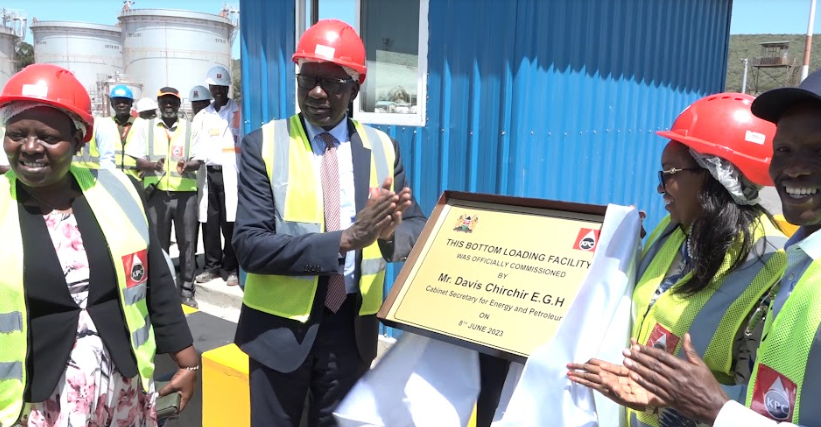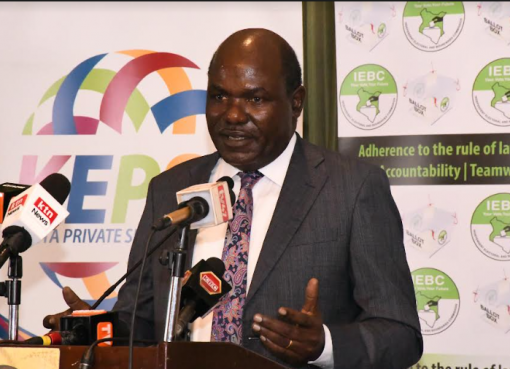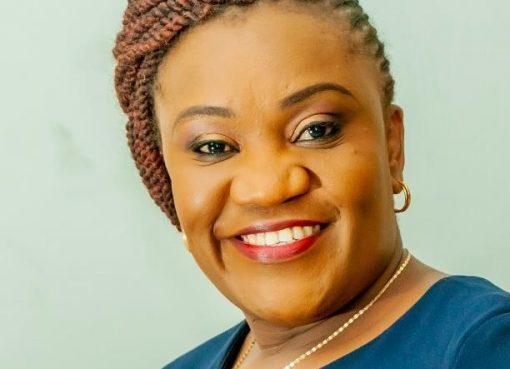The government is easing pressure on the country’s Foreign Exchange (Forex) Reserve by implementing a raft of measures that will ensure dollar availability.
Energy and Petroleum Cabinet Secretary Davis Chirchir said the government-to-government fuel importation deal that the State has entered into with three international oil firms will ease the dollar shortage that has been crippling the economy for the last one year.
Chirchir noted that petroleum products account for about 35 per cent of the total Forex requirements, adding that under the deal, firms will nominate local oil marketers that will oversee the importation and collection of money that will then be paid after the expiry of a six-month credit period.
He added that the credit period, in addition to oil marketers paying for products using the shilling as opposed to dollars as has been the case, is expected to reduce demand for the US dollar and reduce pressure on the foreign exchange reserves that are at their lowest levels in over a decade.
The CS explained that a key objective of the arrangement is to reduce the demand for the US dollar driven by petroleum imports by extending the time required to source dollars from five days to 180 days.
“Importers are usually paid over a short period of time, which is five days every month when the petroleum cargoes arrive in Mombasa. This puts a strain on the local foreign exchange reserves. It also has the effect of significantly increasing demand for the dollar, which in turn tends to weaken the shilling,” said Chirchir.
The CS noted that the credit period was reducing pressure on the shilling and ensuring dollars were available for the rest of the market.
“Dollar unavailability has been a big challenge, aggravated by the devaluation and sliding of the Kenya shilling,” added the Cabinet Secretary.
Chirchir spoke when he commissioned a new bottom loading system at the Kenya Pipeline Company depot in Nakuru.
He said the tightening of monetary policy by the US government due to post-Covid 19 inflation that hit all-time high 9 per cent had contributed to the dollar shortage.
Kenya has selected Saudi Arabia Oil Company (Saudi Aramco), Abu Dhabi National Oil Company (Adnoc), and Emirates National Oil Company (Enoc) to supply petroleum products on credit for nine months (270 days), with an extended credit period of six months (180 days).
Saudi Aramco will supply two cargoes of diesel every month, Adnoc another two cargoes of diesel and one cargo of dual-purpose kerosene, while Enoc will bring in three cargoes of super petrol per month.
Prior to the government-to-government fuel importation deal, companies that import products for their production, such as oil marketers and manufacturers, were forced to buy a dollar at a premium to the Central Bank of Kenya’s official average exchange rate.
This saw the spread between the US dollar’s printed rate by the CBK and the market rate for customers quoted by banks and foreign exchange bureaus widen.
Mr Chirchir, who was flanked by Nakuru Governor Susan Kihika, stated that the government had made significant progress in curtailing the fast depreciation of the shilling when inflation was being caused by the tightening of the US foreign Forex policy.
He pointed out that dealing directly with the oil-producing countries would give Kenya an opportunity to get the fuel at discounted prices.
“I want to assure our fuel companies that they will now be able to pay for their fuel in Kenya shillings; they will no longer have to look for dollars every month because we as a government have done what we must do to ensure that we ease the burden of people who want to realize their returns in dollars,” the CS added.
The local oil industry requires about $500 million (Sh64 billion) every month to buy approximately 740,000 metric tonnes of petroleum products. The oil marketing companies have to pay the importers in US dollars.
The cause of the dollar shortage has been attributed to various factors, including declining exports, high import bills, and reduced remittances.
Foreign exchange reserves are largely tapped for government payments such as servicing external debts and essential government imports such as pharmaceuticals.
The CBK keeps foreign currency reserves such as dollars, euros, Japanese yen, and other currencies as a financial safety net.
The reserves, the bulk of which are in US dollars, also serve as backup funds in unlikely emergencies such as the devaluation of the shilling, thus giving confidence to investments.
Paying in local currency will be a major win for the oil marketers, who have been taking the hit whenever they have to pay a higher Forex rate than what has been factored in the price caps.
It will also ensure the security of fuel supply, avoiding scenarios witnessed previously whereby some oil marketers could not find dollars to pay importers and, in turn, could not access their products to the extent that they started experiencing shortages in some of their retail outlets.
The Cabinet Secretary disclosed that the commissioned bottom loading system had been manufactured by local engineers, adding that it will reduce long truck queues at the storage facility as it pumps into a fuel tanker 1400 cubic litres of fuel per minute.
“It is the first of the proposed 15 we intend to set up. We want to gradually phase out the top loading system, where a staff member climbs on top of the tanker, exposing them to the risk of fire and hazardous fumes. We will continue to invest in safer and more efficient technologies,” the CS disclosed.
By Jane Ngugi and Dennis Rasto





